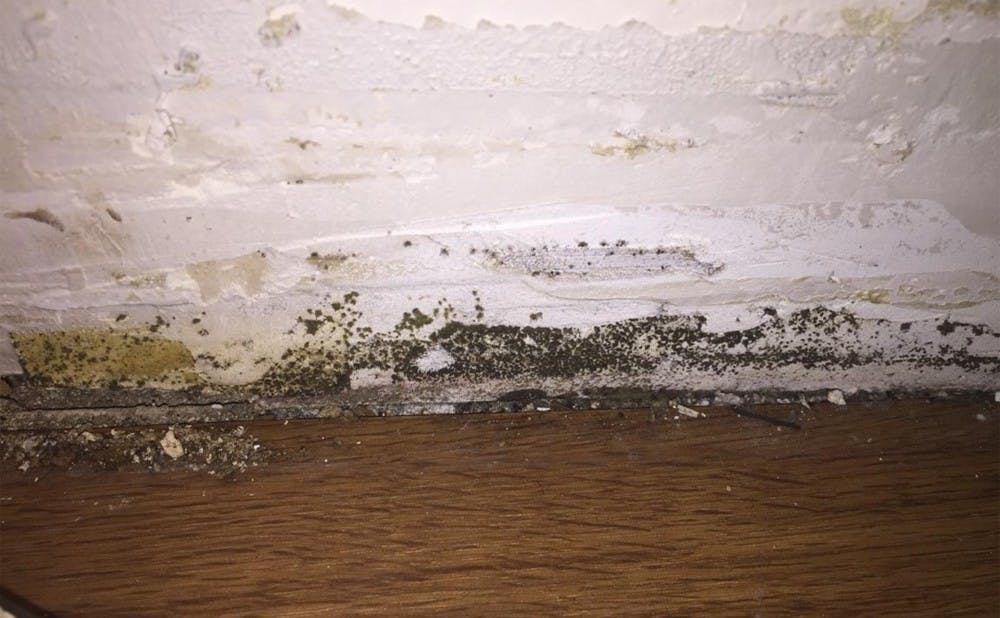In the past several weeks, students have complained of mold in dorms and apartments. But we are not the only campus to experience the problem.
Duke recently contracted with the environmental and engineering consulting firm Duncklee & Dunham to test all Central Campus apartments for mold. Housing, Dining and Residence Life administrators announced earlier this month that the tests have been completed and that they are working to evaluate the best responses for apartments that the tests showed needed attention—including cleaning the air handling units and using HEPA vacuums on furniture and carpets. Across the country, other colleges are responding to mold outbreaks in a variety of ways.
At Northwestern University, several dormitories tested positive for mold, The Daily Northwestern reported. Northwestern’s process for handling mold complaints is similar to Duke’s. Students report mold to housing officials, who follow up with a visual inspection, and test results are sent to a third-party laboratory. The mold at Northwestern was not found to be toxic, although it could cause allergies in susceptible students.
Northwestern students in dorms with mold were given the option of being relocated or having their linens washed. However, some were not confident their problems had been fully addressed, citing concerns that mold could not simply be “wiped off” contaminated mattresses. Northwestern also tested the affected building’s ventilation system, The Daily Northwestern reported.
Several students at the University of Louisville discovered mold as well, according to The Louisville Cardinal. The students noted that mold was growing on the ceiling and walls and said it was causing them to feel sick. Mold is not a new issue for the University of Louisville, which had to relocate more than 250 students out of a residence hall in 2012 due to mold concerns.
The University of Louisville's campus housing director noted at the time that the age of the dormitories—45 years-old—could have played a role in the outbreak. The housing department uses dehumidifiers and has updated the air conditioning systems to help with the issue, the director said in the article.
Another old building at the University of Kansas experienced mold earlier this year in its air conditioning, which was subsequently “cleaned and disinfected.”
Closer to home, residents of the University of North Carolina at Chapel Hill’s Morrison Residence Hall experienced “widespread mold” in early 2015, according to a report in The Daily Tar Heel. One student who submitted a maintenance request for the mold said that a “dusty substance” was coming out of an air vent into his room.
UNC’s Department of Housing and Residential Education said the problem was due to a build-up of moisture in the HVAC system. They completed an approximately $90,000 repair that included replacing air filters and cleaning the ductwork.
Other colleges that have addressed recent mold concerns include Kenyon College, Grayson College and the University of Indianapolis.
Get The Chronicle straight to your inbox
Signup for our weekly newsletter. Cancel at any time.
Adam Beyer is a senior public policy major and is The Chronicle's Digital Strategy Team director.

